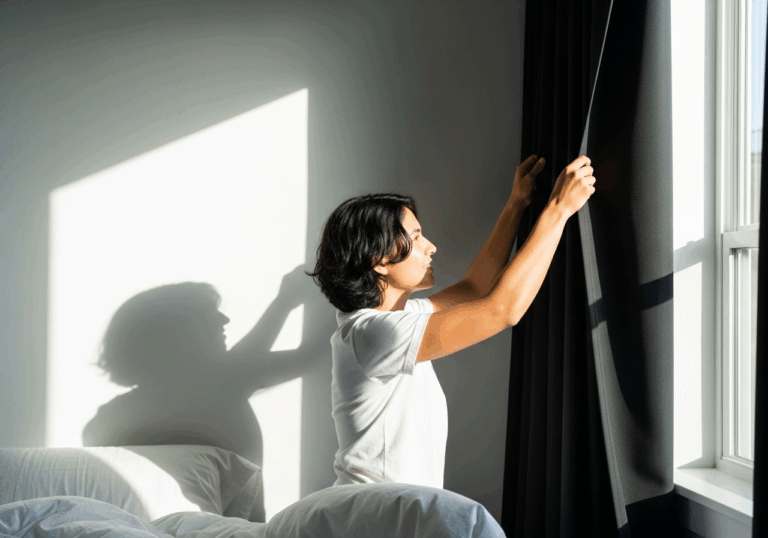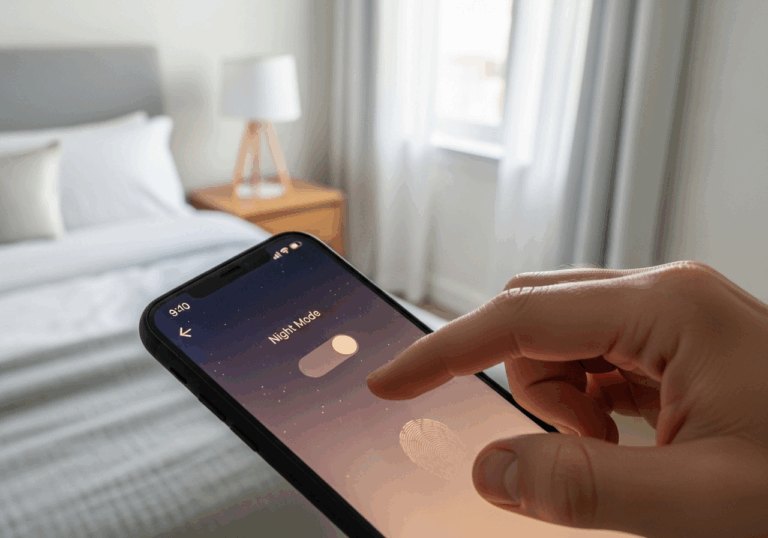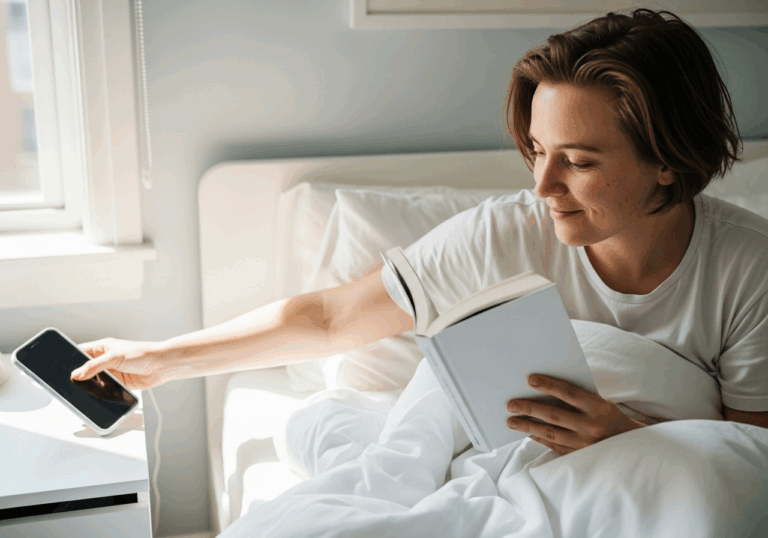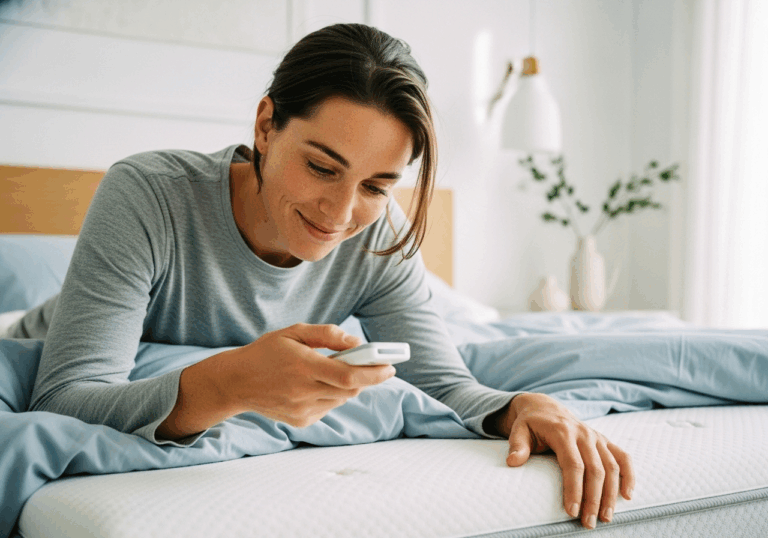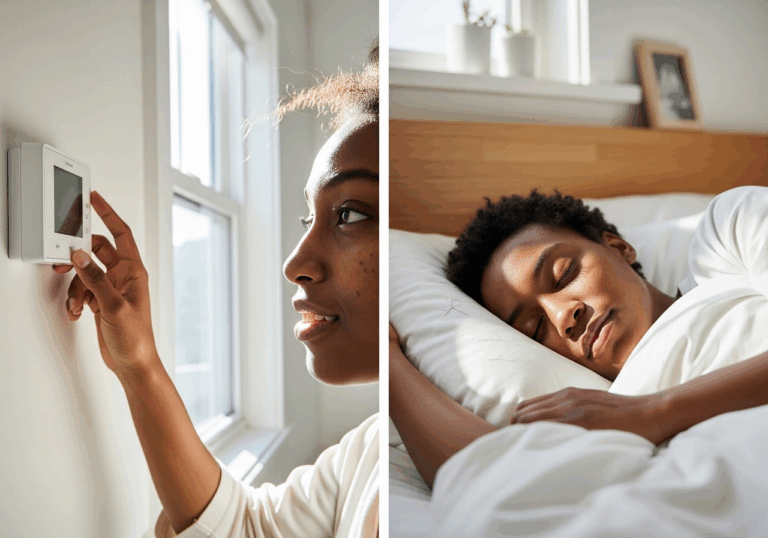Science-Backed Tips
Improve Sleep by Cutting Nighttime Social Media Use
Reduce bedtime procrastination and gain 25 minutes of sleep.
📊 Did you know?
💡 Why It Matters
1️⃣
Improving sleep duration by 25 minutes can significantly enhance overall health and cognitive function.
2️⃣
Reduced pre-bed arousal may lead to lower stress levels, contributing to better mental health.
3️⃣
Better sleep quality is associated with improved mood stability and motivation throughout the day.
✅ Try These Micro-Tips
🎯
Avoid using your phone for at least 30 minutes before bedtime.
🎯
Establish a calming bedtime routine that does not involve screens.
🎯
Consider reading a book or practicing relaxation techniques before sleep.
🎯
Keep your phone out of the bedroom to minimize temptation.
📚 The study
Not only did their sleep improve, but they also reported reduced daytime sleepiness and enhanced mood and motivation. This suggests that minimizing pre-bed arousal—often triggered by social media and other digital distractions—can lead to greater mood stability and lower stress levels.
The significance of these findings cannot be overstated; better sleep quality is closely linked to improved cognitive function and overall health. By simply avoiding nighttime screen use, individuals can foster a more restful environment conducive to sleep, ultimately leading to a more productive and positive day ahead.
As we continue to navigate the challenges of modern life, prioritizing our sleep by reducing nighttime phone use may be one of the simplest yet most effective strategies for enhancing our mental well-being and daily performance. This study serves as a powerful reminder of the importance of establishing healthy bedtime routines in our increasingly connected world.
❓ Frequently Asked Questions ❓
Learn more
How does avoiding social media before bed improve sleep?
Avoiding social media reduces pre-bed arousal, which can lead to better sleep quality. This practice has been shown to improve sleep duration by approximately 25 minutes, enhancing overall health.
What is the recommended time to stop using phones before bed?
It is recommended to avoid using your phone for at least 30 minutes before bedtime. This helps to minimize distractions and promotes a more restful sleep environment.
What are the benefits of improved sleep duration?
Improved sleep duration can enhance overall health and cognitive function. It is also associated with better mood stability and increased motivation throughout the day.
How can I establish a calming bedtime routine?
A calming bedtime routine can include activities such as reading a book or practicing relaxation techniques. Avoiding screens during this time is crucial for reducing stress and promoting better sleep.
What impact does reduced pre-bed arousal have on mental health?
Reduced pre-bed arousal can lead to lower stress levels, which contributes to better mental health. This can result in improved mood and motivation during the day.
What were the results of the study on phone avoidance before bed?
The study found that participants who avoided their phones for 30 minutes before bed experienced improved sleep duration by about 25 minutes. They also reported reduced daytime sleepiness and enhanced mood.
Why is it important to keep phones out of the bedroom?
Keeping phones out of the bedroom minimizes temptation and distractions that can interfere with sleep. This practice supports a more restful environment conducive to better sleep quality.
How does sleep quality affect daily motivation?
Better sleep quality is linked to improved mood stability, which can enhance daily motivation. When individuals sleep well, they are more likely to feel energized and focused throughout the day.
What techniques can I use to relax before sleep?
Techniques such as deep breathing, meditation, or gentle stretching can help relax the mind and body before sleep. These practices can effectively reduce stress and promote a smoother transition to sleep.
How long did the intervention study last?
The intervention study lasted for four weeks, during which participants were randomized to assess the effects of phone avoidance before bed. The results indicated significant improvements in sleep duration and overall well-being.
